...................................................................................................................................................................................................................................................................................
DOíS AND DONíTS OF CREDIT CARDS |
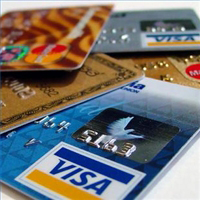
How to Apply for a Credit Card
1) Find out information about credit card plans, rates and terms on
the Internet, in personal finance magazines and in newspapers.
2) Fill out the paper application for a credit card of your choice,
if you do not want to apply online. Ensure that the application is
endorsed by the credit card company and is an original document, not
photocopied.
3) Apply on phone, by calling up the toll free (800) number of the
credit card company of your choice. This number can be found online,
through yellow pages, newspapers or magazines. Follow the automatic
instructions that you hear when you call the number.
4) Apply online, which is usually the easiest, fastest and most
preferred method of credit card application. Go online and search
for the different credit card options offered by different banks,
financial institutions and stores.
5) Compare the different features as regards the fixed or
fluctuating interest rates, APR, credit limits, interest-free days,
penalties, grace periods, schemes for cash advances and balance
transfers, attractive offers and other implied costs.
6) Choose one to suit your requirements and search for applying
options online.
7) Check for the preconditions of applying, such as a driving
license number, social security number, date of birth and address
proof. Usually, there is no need to have a bank account in a
specific bank, nor do you need to maintain a minimum bank balance.
8) Fill in the details, double check the information included, read
the privacy statement and click on "Apply."
9) Apply for multiple credit cards if you choose. However, the
authority to issue of all these cards simultaneously rests with the
issuer, who will first ensure whether you have a reliable financial
background.
How to Get the Best Credit Card Deals
1) In order to get the best credit card deals you need to have, and
you need to maintain great credit. This is the best way to get a
great credit card APR (annual percentage rate). If your credit is
bad, you're going to pay for it in your interest charges. The lower
your credit card APR, the better.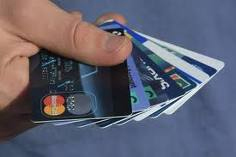
2) Obtain a copy of your credit report each year. All 3 of the major
credit bureaus are required by law to give you 1 free credit report
per year, you just need to visit their respective websites.
3)To get the best credit card deals, do your research! Don't just
fill out the pre-approved ones that come in the mail. Do some
research online to get a real feel for the best credit card deals
that are out there for you.
How to Use Credit Cards Effectively
Credit cards are a great way for people to buy things. The problem
that most credit card users have is spending too much. The power of
a credit card can be too much for many people. There are ways to
effectively use a credit card. When a person puts these practices to
use, it can be easier for them to live without the fear of credit
card debt.
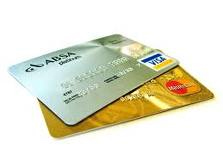
1) Choose your card wisely. It can be tempting to just accept
whatever credit card offer you get in the mail. It's easier and more
convenient, but do a little research. Check out the options that you
have. Many factors should be taken into consideration like the
interest rates, credit card fees and incentive features.
2) Limit the amount of cards that you are using. While many people
really only need one card, it is acceptable to have a backup card
for emergencies. Having more than two cards is hazardous to your
credit.
3) Allow only select people the ability to use your account. You may
have a card made up for someone with his or her name on it, but you
should think twice before giving it to that person. Make sure the
person is trustworthy and knows when he or she can use that card. A
spouse is a reasonable person to add to your account, but anybody
else can be damaging.
4) Know your credit limit, and never go over it. Do not max out your
cards, because you will be faced with many different fees if you do.
5) Pay off the balance right away. This is the best way to pay back
your credit cards. If you pay back your balance as soon as you can,
you will have nothing to worry about later. If you cannot afford to
pay off your balance right away, pay off as much as you can.
Remember, it is better to pay off the minimum balance than nothing
at all.
6) Check your credit card bill each month. If you do not recognize a
payment, you need to take action. Maybe it is something that you
forgot about, but it might be something you never purchased. You
will have to take care of it yourself. Many credit card companies
have different ways of processing these claims, and you should be
aware of yours.
7) Evaluate your credit card usage after a year of using your cards.
Be aware of how you use the cards and all activity that is being
done to your account. Close down the accounts of any cards that you
are not using. You may find that after a year, you are not using a
card. Cut up that card and close the account.
8) Be cautious when using your credit card online. Even if a website
is secure with "https://" in the URL, you should still be a little
wary of your online activity. PayPal is an example of a good
alternative website known for its security. Do not be fooled by
emails stating that they are from your credit card company. It is
best to log into the account to see if those claims are reals. If
you must do this, do not click on any links from the email.
Basic Credit Card Safety Tips
Step 1 -- Keep a Secret
It may sound like overkill, but you need to treat your credit card
number as if it were a precious secret. Only tell it to those who
really need to know and donít say it or lay it where others can find
it out. Before entering your credit card number into any website or
giving it to anyone over the phone, make sure you know exactly who
youíre dealing with and that their reasons for needing your credit
card number are legitimate.
Step 2 -- Lock it Up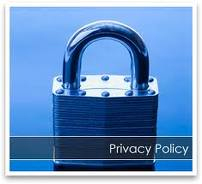
There is absolutely no reason to carry every single credit card you
own around with you. Not only can that lead to frivolous spending,
it can lead to serious credit card safety mishaps. Only carry the
credit cards that you absolutely need and keep your other credit
cards locked up in a personal safe.
Step 3 -- Read Every Line
Each month when your credit card statement comes in, donít
automatically assume everything on it is accurate. Read every line
item on your credit card statement and make sure each and every
charge is legitimate. If thereís a charge you donít recognize, donít
assume itís just something you forgot about. Get down to the bottom
of the charge and make sure itís not fraudulent. A $10 charge may
not see like a lot, but if itís being charged fraudulently each and
every month, it will sure add up over time.
Step 4 -- Be Careful with Your Mail
If you have a street-side mailbox, donít leave your credit card
payments in there for the postal carrier to pick up and make sure
you pick up your mail each and every day. If youíre not careful with
your mail, thieves may dig through it to get your credit card
information.
Step 5 -- Get Credit Monitoring Service
With the above four steps, youíll be able to ensure no one uses the
credit cards you have for fraudulent purposes. But what if someone
opens up a credit card in your name and you donít even know it
exists? If you want to make sure no one is using your good credit to
run up a huge bill, youíre going to want to sign up for credit
monitoring service so you can check your credit report frequently
and be notified if anyone opens up an unauthorized account.
By following the above five steps, you can rest assured that youíll
be well on your way to credit card safety.
How to Protect Yourself Against Credit Card Fraud
1.Shop with Secure Online Merchants
Only shop online with websites that have SSL certificates, which
indicates they offer secure encryption of your credit card number
and other personal information during an online transaction. Look
for the padlock icon or "https" in the address bar, both which
demonstrate the site is secure.
2. Be Cautious when Traveling 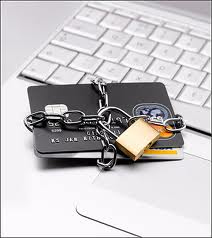
When traveling abroad and making purchases with an international
credit card, make sure you are charged the correct amount and sign
the receipt and fill in any blanks as necessary (such as the tip
line). Also, keep your credit card in a safe, secure place on you
other than your wallet, especially if you are traveling in an area
where pick-pocketing is common.
3. Know the Privacy Policy
Most major online retailers online have a comprehensive privacy
policy and terms and conditions which disclose how they use your
personal information and whether or not they give access to a third
party (e.g. give out your email address to marketers). Most websites
will detail explicitly how safe your credit card information is and
be aware that most major retailers have ironclad privacy policies
that will keep all your information safe and confidential.
4.Review your Statement
Review your credit card statement every single month, more if you
need to. Most credit card companies post your statements online so
you can simply login and check whenever you want. Make sure you can
account for each purchase and notify the company if there are any
suspicious or unauthorized charges.
5. Always Use Common Sense
This is generally the best rule of thumb. If you get an email asking
for credit card information, don't send it. Or if you receive a call
from someone claiming to be from your bank, politely ask for their
name and call the bank back to verify they are from the bank. Never
write down your PIN (which is needed to get cash advances) and keep
it somewhere in close proximity to your card (e.g. your wallet).
Source : ehow.com
Disclaimer: Read
this article carefully Ė The article is for the
matter of general interest and information.